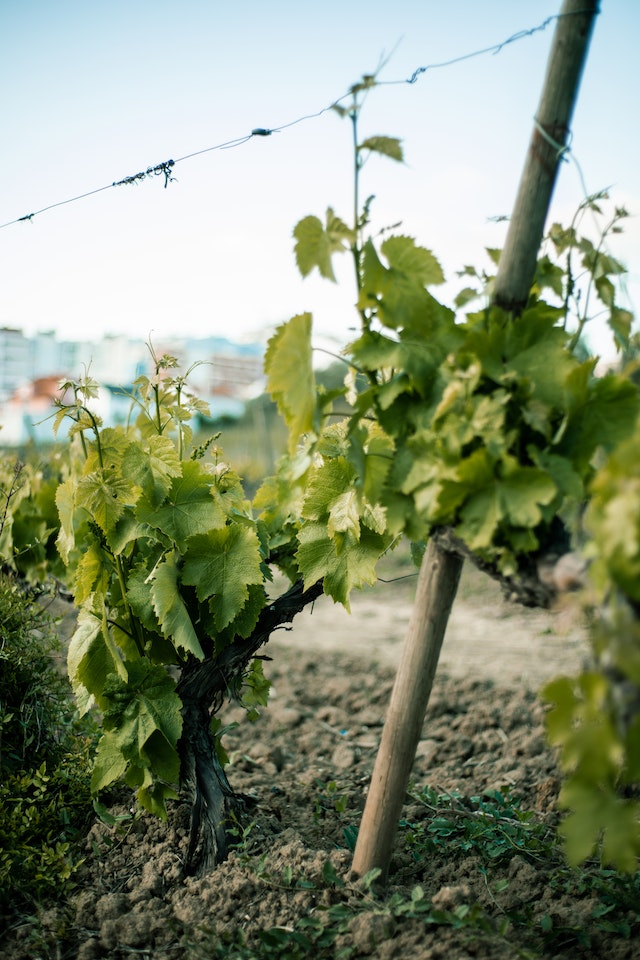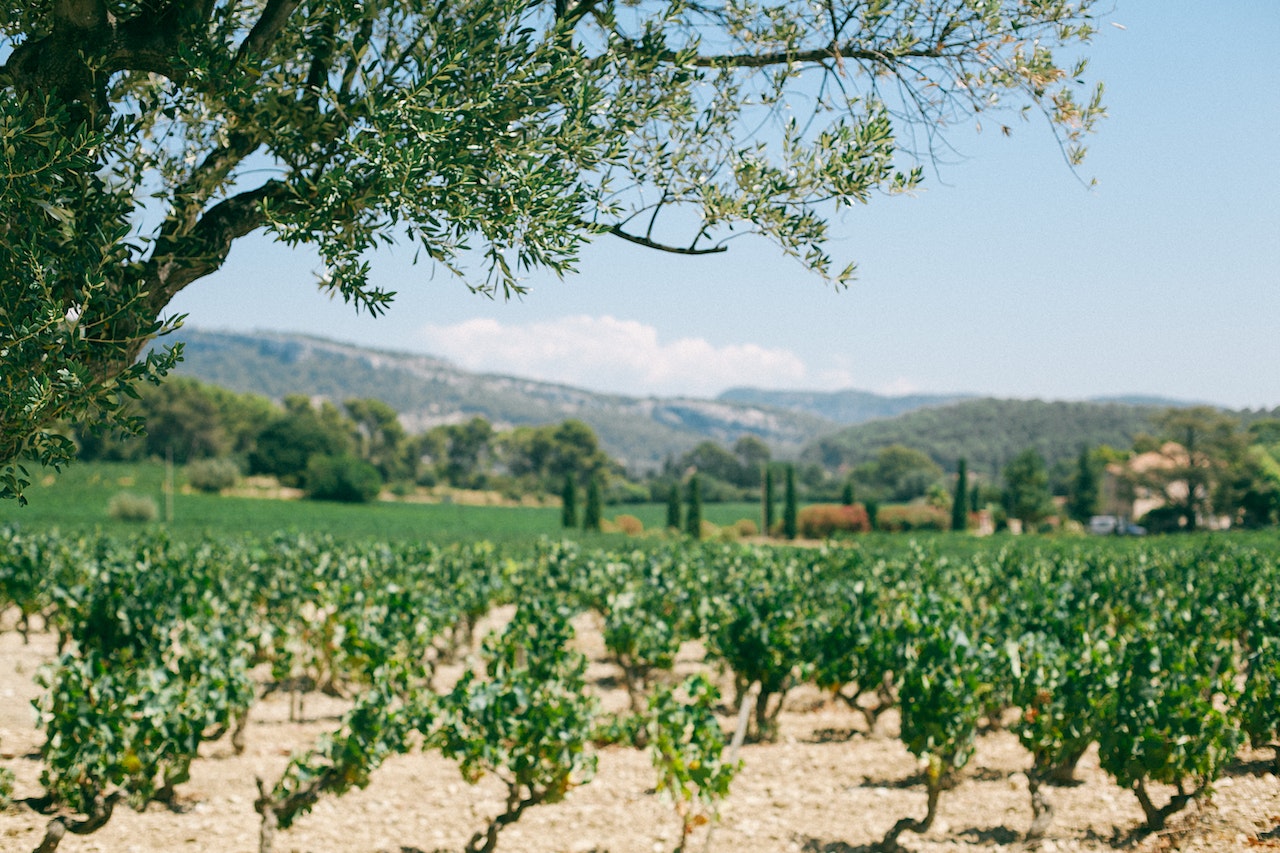Soil is vital in fruit production as it provides the nutrients and growing conditions healthy plants need. Grapevines grow on many different types of soil. Other grape varieties thrive under specific soil conditions for grape production.
Since grape roots are well formed, they have a high chance for wider adaptability to any soil condition and can be grown in almost all soil types. However, several soil types can generally support grape cultivation.
Soil Key Elements for Production
1. Soil PH
Most fruit crops prefer a slightly acidic to neutral soil pH. Soil experts and farmers conduct a soil test to measure soil pH and adjust if necessary. Lime can even be added to raise the pH, while sulfur and acid additives can lower the pH.
2. Soil Texture
Fruit crops generally grow in well-drained soils with good root development and prevent waterlogging. Sandy loam or loamy soils are often ideal. Drainage and structure can be improved by adding organic matter, such as compost or manure.
3. Nutrient Content
Fruiting plants have specific nutritional needs for healthy growth and productivity. Nutrients like nitrogen, phosphorus, and potassium and micronutrients like iron, zinc, and manganese are necessary to make a well-developed soil composition for fruit production. Experts take a test for the presence of essential nutrients, and based on the test results, they can apply fertilizers or organic amendments to address any deficiencies.
4. Drainage and Water Management
Proper water management is essential for fruit cultivation. Excessive waterlogging can cause root rot and other diseases, thus it’s best to make sure the soil has good drainage. Raised beds or proper soil amendments can help improve drainage. Also, producers consider watering methods that provide an even moisture distribution without the stress of flooding or drought.
5. Organic Matter
Adding organic matter to soil improves soil fertility, structure, and water-holding capacity. Compost, rotted manure, or cover crops can increase the organic matter content. Regularly adding organic matter promotes beneficial soil microorganisms’ growth and improves nutrient availability.
6. Mulching
Applying mulch around fruit trees and plants helps retain moisture, control weed growth, and regulate soil temperature. Organic types of mulches, such as straw, wood chips, and shredded leaves, are commonly used. However, soil experts keep the mulch a few inches from the plant stems to prevent rot and disease.
Types of Soil for Fruit Production
It is important to remember that vines can adapt to various soil conditions and that certain grape varieties may prefer certain soil types. Also, soil management practices such as irrigation, drainage, and nutrient supplementation can affect grape production in different soil types. The local climate, vineyard location, and other environmental factors should also be considered when choosing suitable soil for growing grapes.
1. Sandy Soil
Sandy soils are well-drained and retain heat. In temperate climates, sandy soils produce ‘softer’ wines with less color, acidity, and tannin. Sandy soil has large particles and is quick to drain, so water penetrates well and prevents water clogging. It cannot retain nutrients well but benefits vines that prefer drier conditions, such as certain Mediterranean varieties.
In regions with cooler climates, sandy soils favor vineyards, retaining heat and producing well-drained, aromatic wines. A side effect of sandy soils is resistance to pests, which may increase organic farming in wine regions. Cannubi is the top cru of Barolo on sandy clay soils. Intense aromas, light tannins, and bright colors characterize Cannubi wines.
2. Clay Soil
Clay soils have smaller particles and retain moisture more effectively. There are several types of clay soils, and an even cooler limestone clay called Calcareous clay. These soils are famous for producing some of the world’s strongest red and white wines. It is prone to poor drainage and compaction, but good tillage techniques can improve the structure.
Some grape varieties grow well in clay soils, especially those with more active root systems. Rioja and Ribera del Duero, Spain, the highest quality Tempranillo vineyards, are grown on limestone-rich clay soils. Vosne-Romanée in Burgundy is known for producing the world’s most famous Pinot Noir on clay-limestone soils called Marl.
3. Loam Soil
Loam is a mixture of silt, clay, sand, and an organic matter called humus in roughly equal proportions. It offers excellent aeration, nutrient retention, and root development, making it suitable for many grape varieties. Loam is very fertile and usually causes overactive vineyards.
Due to their high vitality, most clay soils produce wines with little flavor or color. Nevertheless, the clay soil offers excellent wine potential from strictly pruned vineyards. Much of the Sonoma and Napa Valley valleys are sandy loam. The sand keeps the ground lean enough to produce quality wine grapes.
4. Volcanic Soil
Volcanic soils, often called “volcanic ash” or “tuff,” are formed from volcanic eruptions and contain various minerals. These soils are typically well-drained, fertile, and have good water retention. Volcanic soils are found in several wine-growing regions worldwide and can favor grape production.
5. Chalky Soil
Chalky soils, also known as limestone soils, are alkaline and contain high concentrations of calcium carbonate. Limestone provides beneficial nutrients to the grapes, promoting their growth and producing sweeter grapes. It retains moisture in dry weather and has excellent drainage in cool weather. This soil type is beneficial in cooler climates as it drains and retains heat well. Some grape varieties, such as those used to make champagne, do well on chalky soils.
6. Alluvial Soil
Alluvial soils are formed by depositing river sediments and contain a mixture of clay, silt, sand, and organic matter. It is generally fertile, well-drained, and has excellent water-holding capacity. Alluvial soils are common in river valleys and can support various grape varieties.
Conclusion
Keep in mind that each variety of grape has specific soil requirements. Therefore, it is necessary to research and understand the needs of the particular type of grape you plan to grow. A local farmer’s office or horticultural expert can provide specific recommendations based on your geographic area and fruit crop selection.



